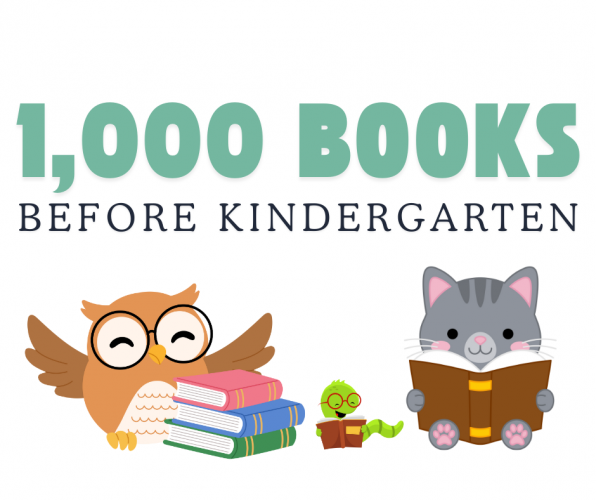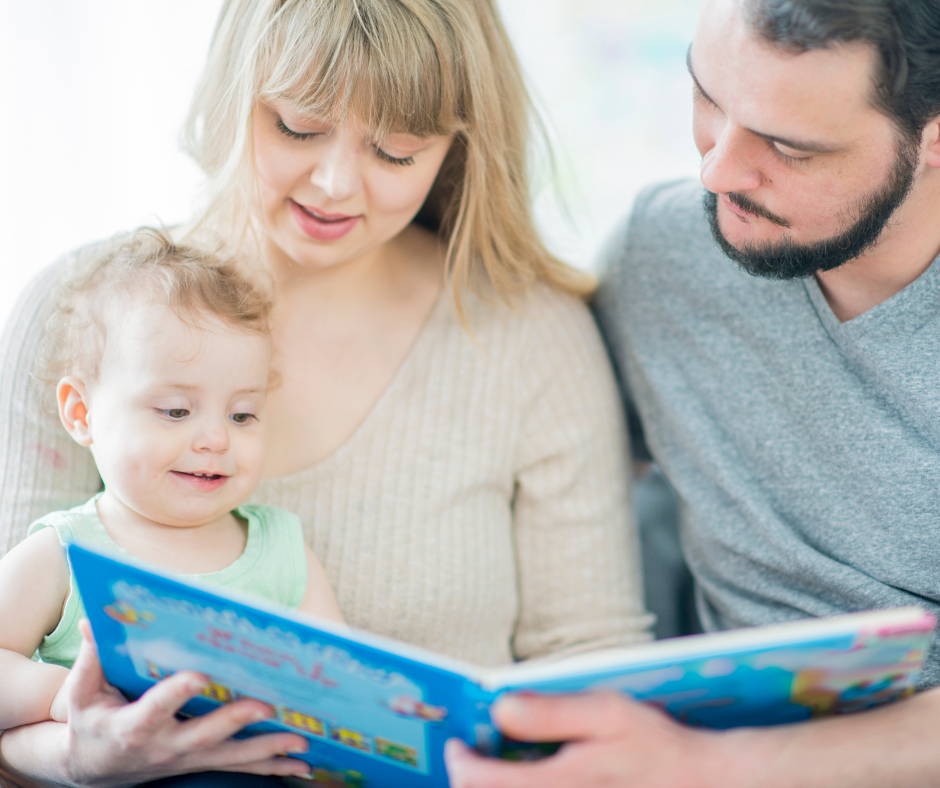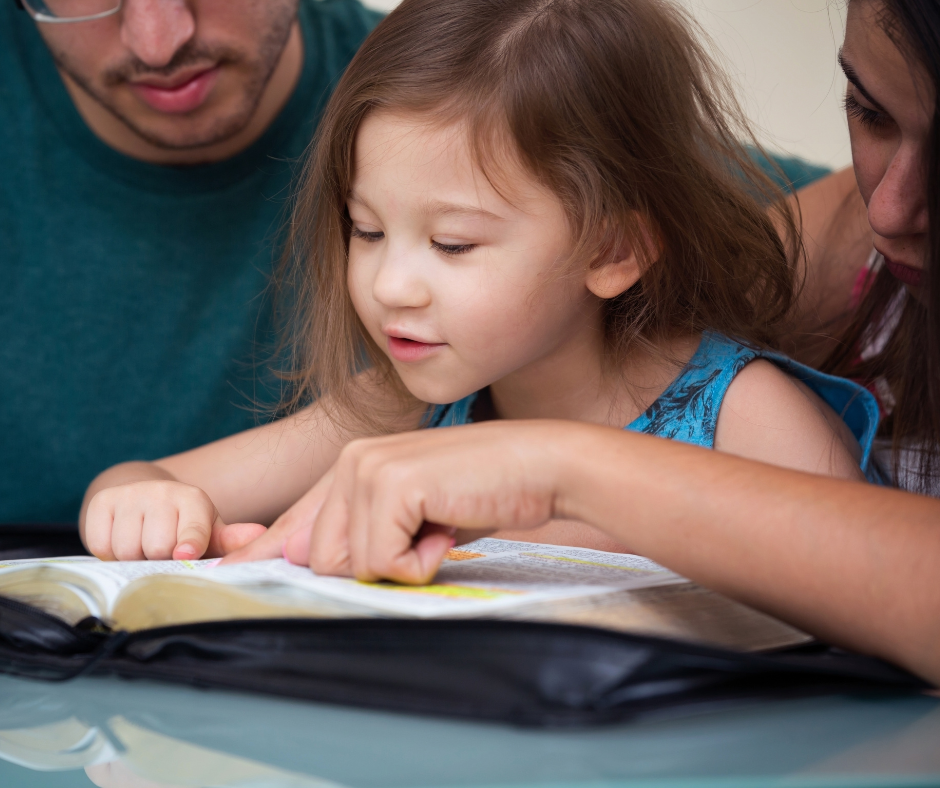Parenting Resources
We encourage parents and families to be involved in building early literacy skills. Reading with your child build more than vocabulary and communication skills, it builds parent-child relationships and creates wonderful memories together.
Join our 1,000 Books Before Kindergarten program
The concept is simple, the rewards are priceless. Read a book (any book) to your newborn, infant, and/or toddler. The goal is to have read 1,000 books (yes you can repeat books) before your precious one starts kindergarten. Does it sound hard? Not really if you think about it. If you read just 1 book a night, you will have read about 365 books in a year. That is 730 books in two years and 1,095 books in three years. If you consider that most children start kindergarten at around 5 years of age, you have more time than you think (so get started).
The key is perseverance. Make it exciting. When your child reaches a milestone, give him/her a small reward (stickers, backpacks, books). Most local programs already have a reward system built into place. If a program is not available where you live, join our program today. Most of all, be creative!
Source: 1,000 Books Before Kindergarten Program
Visit the Read 1,000 Books Before Kindergarten Page to learn more!


Tips to work with your child to build a strong vocabulary and other language skills.
• Listen as much as you talk
• Talk about things your child is already interested in.
• Make a conversation longer by adding new information or asking a follow-up question.
• Make a point of introducing your children to other adults or children, telling one another their names.
• Use mealtime to ask about the day’s events.
• Use drive time. (Turn off the radio.)
• Reread familiar stories, and talk about the book.
• Follow the child’s lead, and encourage a train of thought he or she already has.
• Comment on what your child is doing. “Oh, you made a big house!”
• Ask a variety of questions in conversation. (Who, What, Where, Why, What do you think?)
Things to do before, during and after reading a book to your child.
Things to do “BEFORE” you Read a Book:
- Read the title, author and illustrator’s name.
- Introduce and teach vocabulary words
Things to do “DURING” Reading a Book:
- Make predictions
- Ask questions
- Answer children’s questions
- Read with enthusiasm
- Use different voices
Things to do “AFTER” Reading a Book:
- Use sentence completion opportunities
- Do activities related to the book (retell the story, draw a picture, etc.)

Reading and writing go hand in hand. Help your child with writing by providing opportunities to practice writing skills.
Show children how you use writing:
- Writing your name or the child’s name on things.
- Making lists of things to do or items to pick up at the grocery store.
- Writing a note or letter.
- Writing in a diary.
- Writing events on a calendar.
Provide lots of writing materials:
- Have lots of paper and different kinds of paper available and accessible (for example, in the child’s room, and in a play area).
- Have lots of pencils, crayons, markers available and accessible.
- Provide children with blank books to draw and write in.
- Provide children with office forms, phone message pads, smaller notebooks and pocket calendars.
Create reasons for your child to write:
Of course, younger children won’t be able to actually write. The point is to ask them to try, help them if they ask (but don’t do it for them), encourage them to pretend to write (just like Mommy or daddy does) and praise any effort. Here are some specific suggestions:
- Ask your child to put their name on all artwork or other creations.
- Have children make lists of things they want to remember, or simply to imitate you when you have a list.
- Ask children to write a note for a sibling, friend, grandparent or child care provider.
- Encourage a daily writing experience by giving children a diary and having them write in it at a regular time. (Younger children can just scribble. Older children can perhaps draw a picture and describe things that happened.)
- Help note children’s schedules on a calendar. What will they be doing this week? Important upcoming events can be noted.
Make writing part of their play
Children love to pretend. Add a writing element to pretend play, such as:
- Office or home play should include paper and pencils.
- A pretend restaurant can include children creating menus and taking orders on note paper.
- If you have a play telephone, put a phone message pad nearby with pencils and encourage notes.
- Provide envelopes and paper and encourage letter writing as one way pretend characters can communicate with one another.